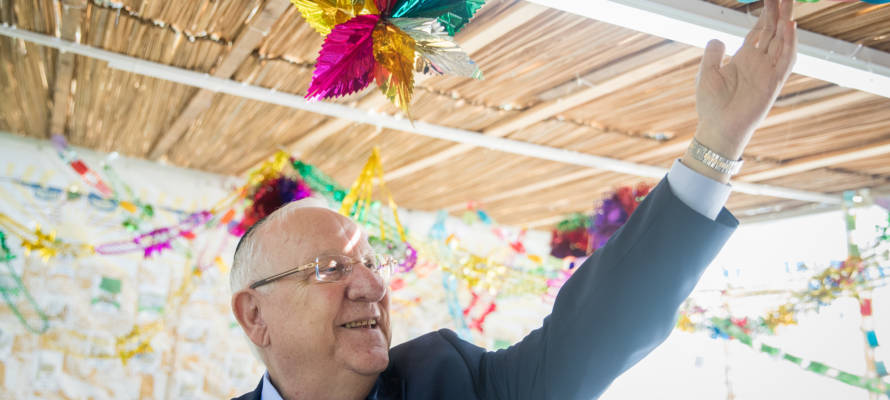Concern for our material possessions does not represent indulgence, but in fact the opposite. We learn this lesson from our forefather Jacob and the Festival of Sukkot.
By Rabbi Ari Enkin, Rabbinic Director, United with Israel
There is a well-known teaching that each of the three festivals of Pesach (Passover), Shavuot and Sukkot corresponds to one of the three patriarchs – Abraham, Isaac and Jacob.
Pesach corresponds to Abraham owing to the fact that the visit he received from the three angels following his circumcision occurred on Pesach. Shavuot corresponds to Isaac because when the Torah was given on Mount Sinai, the shofar (horn) that was blown came from the ram that was sacrificed in place of Isaac on Mount Moriah. But the Sukkot connection to Jacob is a bit peculiar. We are told that Jacob is connected to Sukkot because when he returned to the Land of Israel, “He built a house for himself and booths (“sukkot”) for his cattle.”
Why does building a shed for animals connect Jacob to the holiday of Sukkot?
One of the answers to this famous question takes us back to the story in the Book of Genesis in which Jacob was attacked by a mysterious man or possibly even an angel. Jacob was injured somewhat seriously. The attack took place when Jacob left his family momentarily to retrieve some small jars that he had forgotten during a recent pause in their travels. Small, inexpensive jars.
The Talmud says that from this episode we learn that “righteous people value their money more than their bodies.”
But why did Jacob risk his life to retrieve some forgotten, inexpensive jars in the darkness of night all by himself? Why do righteous people attach such importance to their material possessions? One would think that righteous people are far more focused on spiritual gains, not material ones.
It is explained that righteous and spiritual people are specifically concerned with their material possessions because they recognize that it all comes from God. Similarly, if you DON’T have something, that’s because God doesn’t want you to have it. But if you DO have it, there is a reason for it.
Jacob appreciated everything he owned because he knew that it was in the Divine plan for him to own it. Abandoning them could be seen as offensive to God.
We see from here that concern for our material possessions does not represent indulgence, but in fact the opposite. Taking care of our material possessions allows us to be more spiritually sensitive and leads us to appreciate everything we have.
Jacob’s approach to wealth and material possession is seen again when he builds a house for himself and sukkot for his cattle. We are told that the “house” he built was actually a place for study and prayer. We see from here that when it comes to mitzvot (Torah commandments) and serving God, Jacob builds a house – a strong, permanent structure. But when it comes to material possessions, his cattle, he builds a sukkah, a flimsy booth that meets the minimal requirements needed to protect the animals. When putting down the big bucks, we must make sure that there is a spiritual side to our investment.
We can now understand the connection between Jacob and Sukkot. On Sukkot we leave our homes to eat and sleep in flimsy booths in order to remind ourselves that this world and its pleasures are only temporary, while the next world and its benefits are eternal. It is a message, first taught by Jacob, that remains true to this day.

Do You Love Israel? Make a Donation - Show Your Support!
Donate to vital charities that help protect Israeli citizens and inspire millions around the world to support Israel too!
Now more than ever, Israel needs your help to fight and win the war -- including on the battlefield of public opinion.
Antisemitism, anti-Israel bias and boycotts are out of control. Israel's enemies are inciting terror and violence against innocent Israelis and Jews around the world. Help us fight back!



